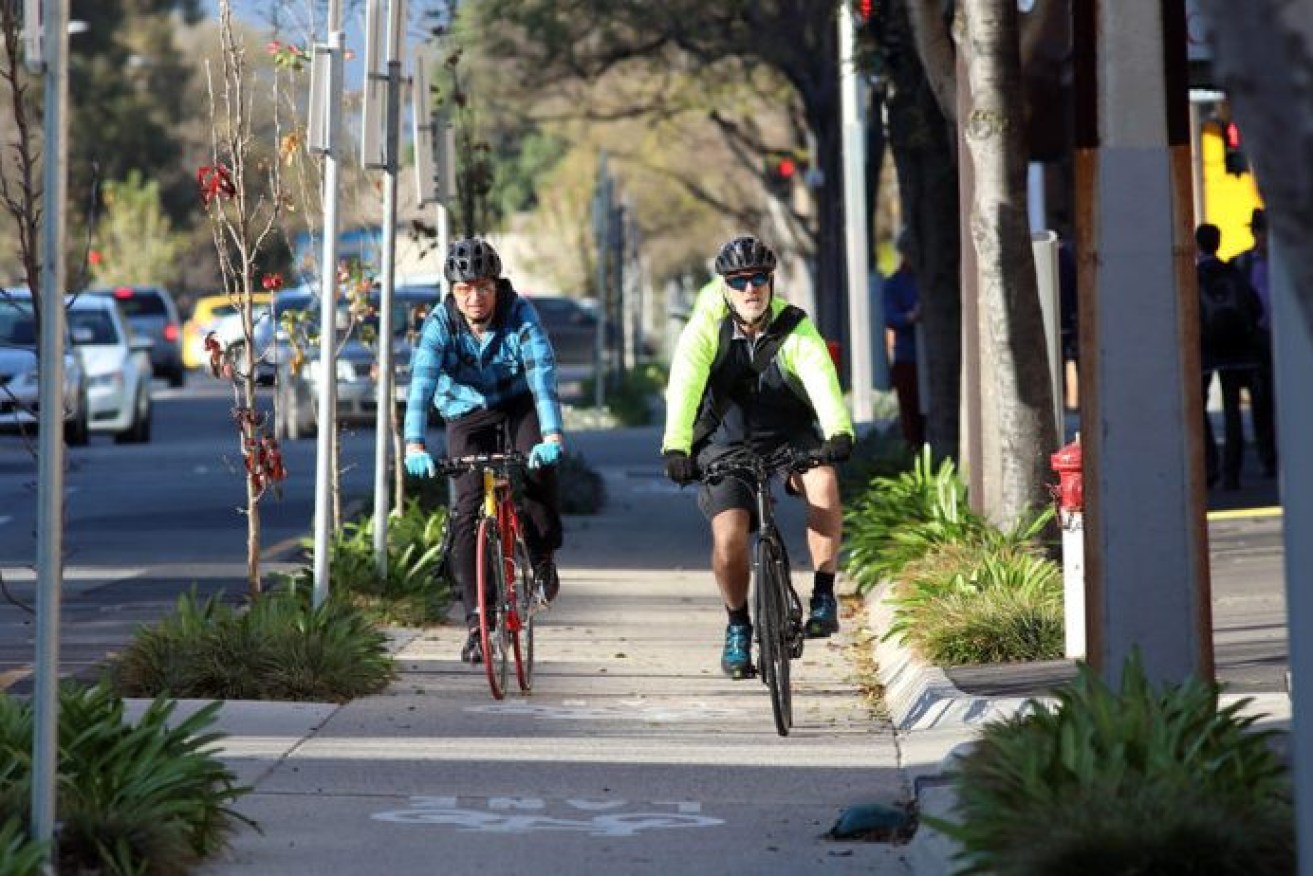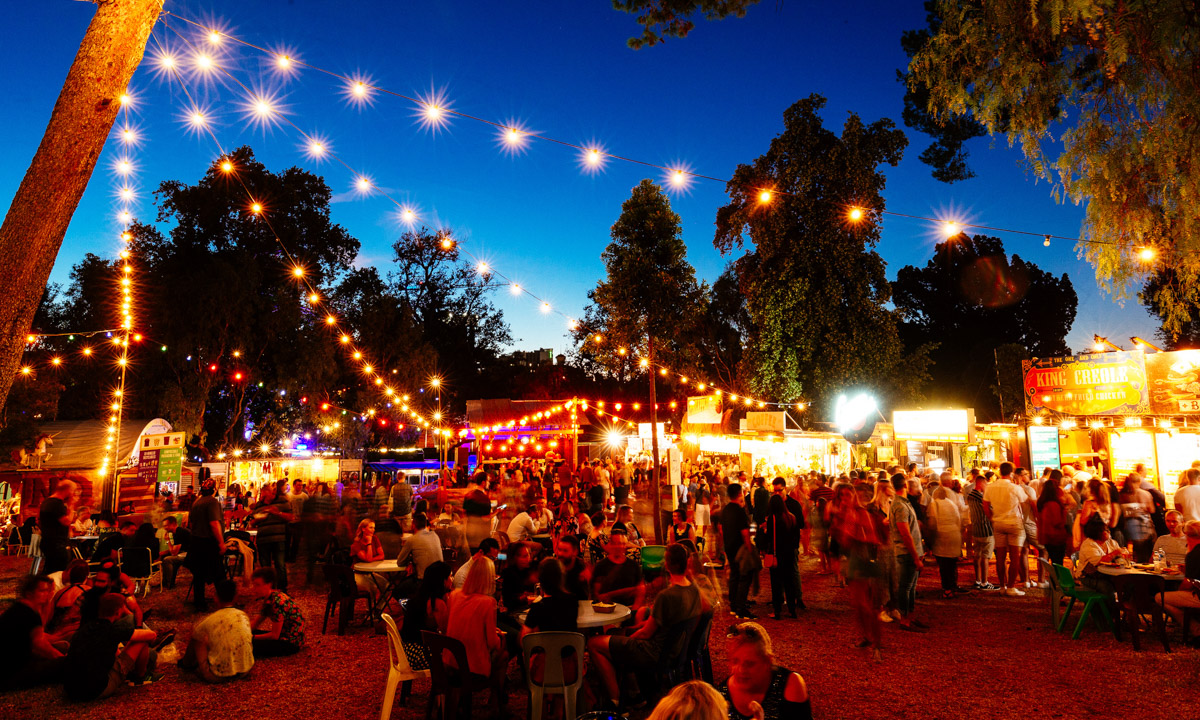Adelaide ranked rock bottom for tackling traffic congestion
Adelaide’s public transport and cycling networks lag well behind 19 similar cities around the world making it the only place on a global list where traffic congestion rose over the past four years, according to a Benchmarking Adelaide report released today.


Photo: Tony Lewis/InDaily
The city ranks last among its benchmarked peers and “in the bottom third among 170 American and European cities” for the quality of its bike network in the first-of-its-kind study commissioned by the Committee for Adelaide, JLL, Deloitte, RAA and Hames Sharley.
“The city’s score is almost half of that of its peers, pointing to a real gap in its cycle network,” the report by urban intelligence firm The Business of Cities said.
At the same time, five per cent more people travel by car and Adelaide is one of 10 among 25 global cities that does not have a “whole-city transport policy committed to health outcomes”.
“Adelaide is the only city where the number of hours lost to traffic congestion has increased since 2019, a 16 per cent increase versus a 27 per cent fall among 14 peers,” the report found.
The study compared Adelaide to 19 cities deemed to share similar size and characteristics, including Bordeaux in France, Valencia and Bilbao in Spain, Fukuoka in Japan, Penang in Malaysia, Portland in the United States, Cardiff in Wales, Muscat in Oman and Cape Town in South Africa.
Among the list are six of the world’s 11 great wine capitals.
Comparisons showed while Adelaide is thriving in some areas, it has an inefficient commuting model with high car dependence and slow adoption of alternative transport.
The study, which warned Adelaide is likely to slip even further down the charts without further investment and innovation, said transport and infrastructure improvements were essential to harness economies of scale in “connecting people, goods, clients, customers and services”.
Many Adelaide residents cannot easily walk to key services, with the study ranking the city 20th out of a sample 25 cities globally in the number of locals able to reach a fresh food market or supermarket on foot.
“Adelaide’s public transport is accessible, meaning that more people live close to bus, train or tram stops,” it found.
“However, it falls down on efficiency, with lower travel speeds and multiple service transfers often required. Rethinking the network and introducing more flexible public transport fares, such as distance-based pricing, could be a way to increase uptake and reduce car dependence.”
RAA chief executive officer Nick Reade said Adelaide’s ranking of sixth in population growth in the study shows the need to “prioritise investment in our transport system and key infrastructure projects, particularly in high-growth areas”.
“When it comes to transport and infrastructure this report validates much of what we already know – that Adelaide is falling behind where it needs to be,” Reade said.
“We need to make public transport more efficient and attractive to commuters, we need to invest in cycling infrastructure and transition all transport to zero emissions.”
The independent study was designed to measure Adelaide’s strengths and identify opportunities to grow economic prosperity globally, collating evidence for organisations to lobby for policy changes and investment.
Adelaide the “gastronomy and festival capital”
Adelaide’s arts and creative scene is a standout in the study, with some caveats. It rates second among 13 peer cities for its contemporary arts scene, third in the number of best-selling authors produced, and fifth for the scale of the local film industry.

The Adelaide Fringe broke the Australian record for most tickets sold at a festival in 2023. Photo: Andre Castellucci.
The report labels Adelaide a gastronomy and festival capital with great potential to further deliver on its “boutique” promise – but warns this must be valued to achieve wider economic ambitions.
“Currently this area emerges as a strategic weakness for Adelaide in an international context,” the report found.
“The scale of the urban culture and creative economy is also behind. Given the role culture and vibrancy have in talent attraction, this area could affect many of Adelaide’s wider economic ambitions.”
Adelaide’s other strengths were listed as being third for business and investment dynamics, fifth for liveability, affordability and wellbeing with high home ownership and ninth for skills, knowledge and population.
Its wins high ratings for being a top place for Artificial Intelligence investment and living, affordability and wellbeing.
Low pay, low productivity
Productivity is nearly 20 per cent below peer cities and the share of jobs in high-paid sectors is 10 per cent smaller than leading counterparts.
“Compared to cities internationally Adelaide has only made a patchy transition to jobs in high-paying sectors,” the report said.
“Becoming perceived as a city of opportunity to scale is key to retaining and maximising talent. Otherwise, many firms may continue to move to other cities.”
University merger a positive
It suggested the merger of the University of Adelaide and the University of South Australia gave the city “a big chance for reputational and societal impacts”, suggesting a base of international graduates could be harnessed “to big effect” in existing aeronautics, space, energy and waste sectors.
Adelaide is ranked joint second among 18 peers for its relative size talent pool working in aeronautics and weapons and is in the top six for energy and waste.
Committee for Adelaide chief executive Sam Dighton said the findings showed Adelaide as a great place to live and work but also revealed weaknesses “holding back our true economic and social potential”.
“Crucially, the report highlights that Adelaide’s economic productivity is behind that of its comparable international peers, and we have a lower share of jobs in high-wage, knowledge-rich sectors,” Dighton said.
“We should not shy away from the challenges that face us, and this report provides a fresh perspective on the opportunities to guide our city’s reinvention and how we can capitalise on our advantages in key industries to attract and retain talent.”




